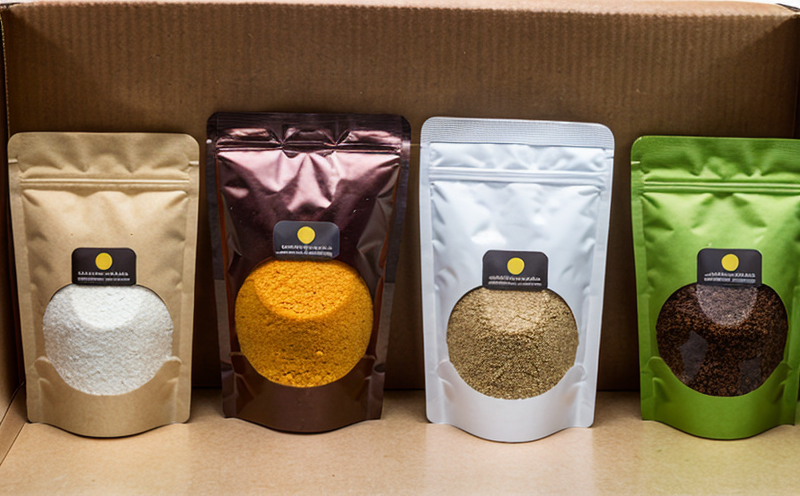Aluminum Leaching Testing in Food Contact Materials
The testing of aluminum leaching from food contact materials is a critical process to ensure consumer safety and compliance with regulatory standards. Aluminum, widely used in packaging and containers due to its lightweight, corrosion resistance, and barrier properties, can potentially migrate into food products during storage or consumption. This migration could lead to undesirable levels of aluminum in the final product if not properly controlled.
Regulatory bodies such as the U.S. Food and Drug Administration (FDA) and European Union have established strict guidelines on the permissible limits of aluminum leaching from food packaging materials. Compliance with these regulations is essential for ensuring that products meet safety standards and do not pose a health risk to consumers.
The testing process involves several key steps, including the selection of appropriate test conditions such as temperature, humidity, duration, and type of food simulants used. Specimen preparation plays a crucial role in accurately representing real-world scenarios, ensuring that the test results reflect actual product behavior under various conditions.
At Eurolab, our state-of-the-art laboratory facilities are equipped with advanced analytical instruments capable of detecting even minute traces of aluminum. Our team of experienced scientists employs internationally recognized standards like ISO 10350-4 and ASTM F2978 to ensure precise and reliable results.
The leaching process can vary based on the type of material, its intended use, and environmental factors such as moisture content and exposure time. Therefore, it is vital that the testing methodology closely mimics real-world conditions where possible. This approach helps in identifying potential risks early in the product development lifecycle.
| Material Type | Application |
|---|---|
| Cans and Foil Laminates | Use in beverage, sauce, and other food packaging. |
| Aluminum Foils | Wrap around cheese, meat, and other perishable items. |
| Paperboard with Aluminum Coatings | Used in microwave popcorn bags and bakery products. |
Benefits
- Ensure compliance with international standards.
- Demonstrate product safety to regulatory bodies.
- Protect brand reputation by avoiding recalls or legal issues.
- Promote trust among consumers and retailers.
- Facilitate market entry into compliant regions.
- Avoid costly rework or redesign of packaging materials.
Industry Applications
The aluminum leaching testing is particularly important for industries such as food and beverage, pharmaceuticals, and cosmetics. Here are some specific applications:
- Beverage packaging: Ensuring safe storage of carbonated beverages.
- Pharmaceuticals: Protecting drug stability within containers.
- Cosmetics: Safeguarding the integrity of product formulations.
Eurolab Advantages
At Eurolab, we offer a comprehensive suite of services tailored specifically to meet your needs. Our expertise lies in delivering accurate, reproducible results that are both cost-effective and time-efficient.
- State-of-the-art laboratory facilities equipped with the latest technology.
- Experienced scientists adhering strictly to international standards.
- Dedicated customer support ensuring seamless communication throughout the project lifecycle.
- Prompt turnaround times without compromising on quality.





